A fellow researcher (Tina Papathoma) asked me to record a video in which I discuss my experience with the writing and defending my PhD thesis. She presented it to the “How to finish your PhD thesis and successfully defend it” workshop at the 15th EATEL Summer School on Technology Enhanced Learning (JTELSS 2019) which took place on […]
Category: Events
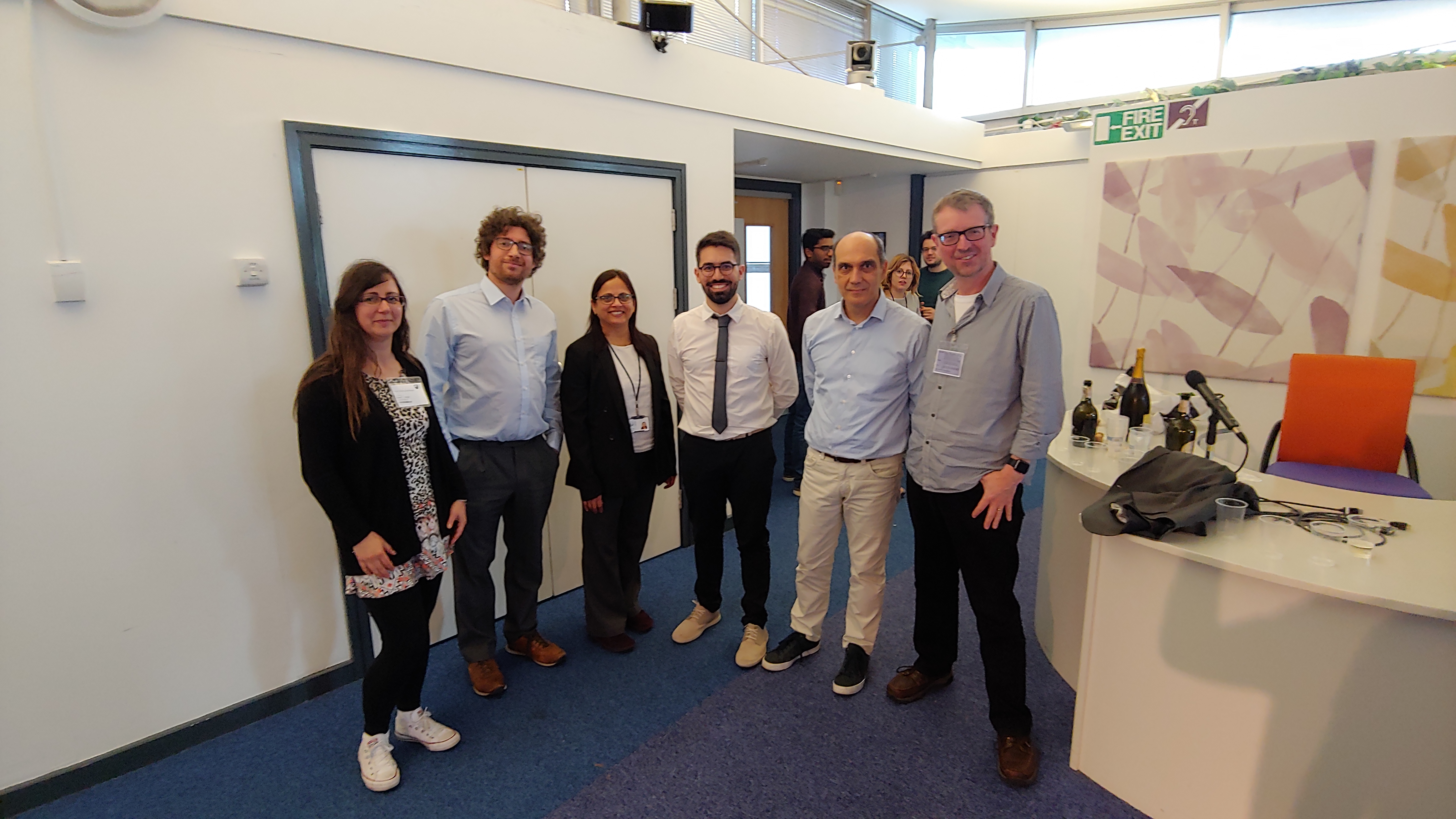
Defended my Thesis
On 31st May 2019, I defended my thesis on the “Early Detection of Research Trends”.
The exam panel consisted of Dr Pallavi Anand from the Open University as chair, and two external examiners Prof Kalina Bontcheva from the University of Sheffield, and Prof Alun Preece from Cardiff University.
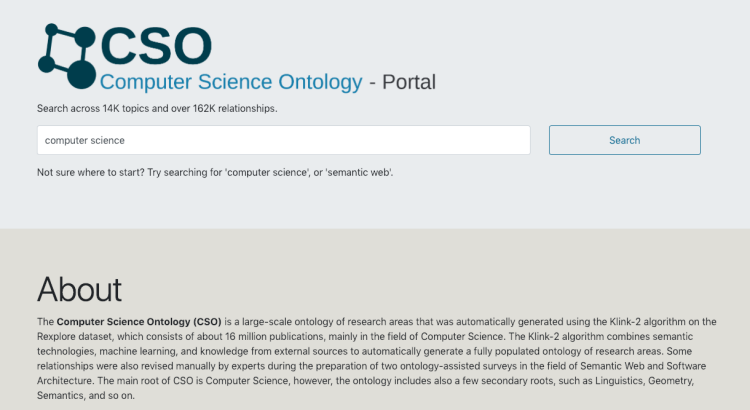
The Open University and Springer Nature launch the Computer Science Ontology
Springer Nature and the Knowledge Media Institute (KMi) of The Open University are partnering to provide a comprehensive Computer Science Ontology (CSO) to a broad range of communities engaged with scholarly data. CSO can be accessed free of charge through the CSO Portal, a web application that enables users to download, explore, and provide feedback on the ontology.
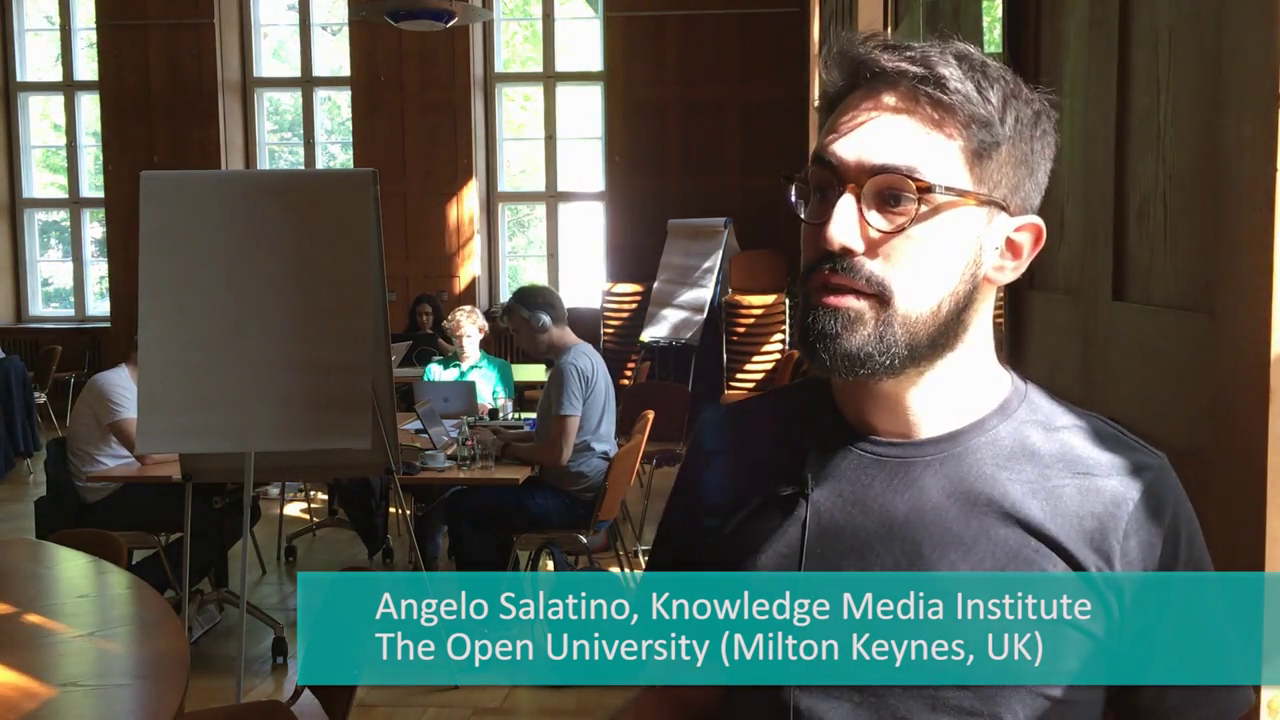
Springer Nature Video of Berlin’s Hack Day
Last April, with my team, we attended the Springer Nature HackDay in Berlin (here is the post). Recently, Springer Nature released a short video featuring us. Summarised is also my interview, in which I discuss my research project and why we think SciGraph is important for those who work in the field of Science of Science. […]
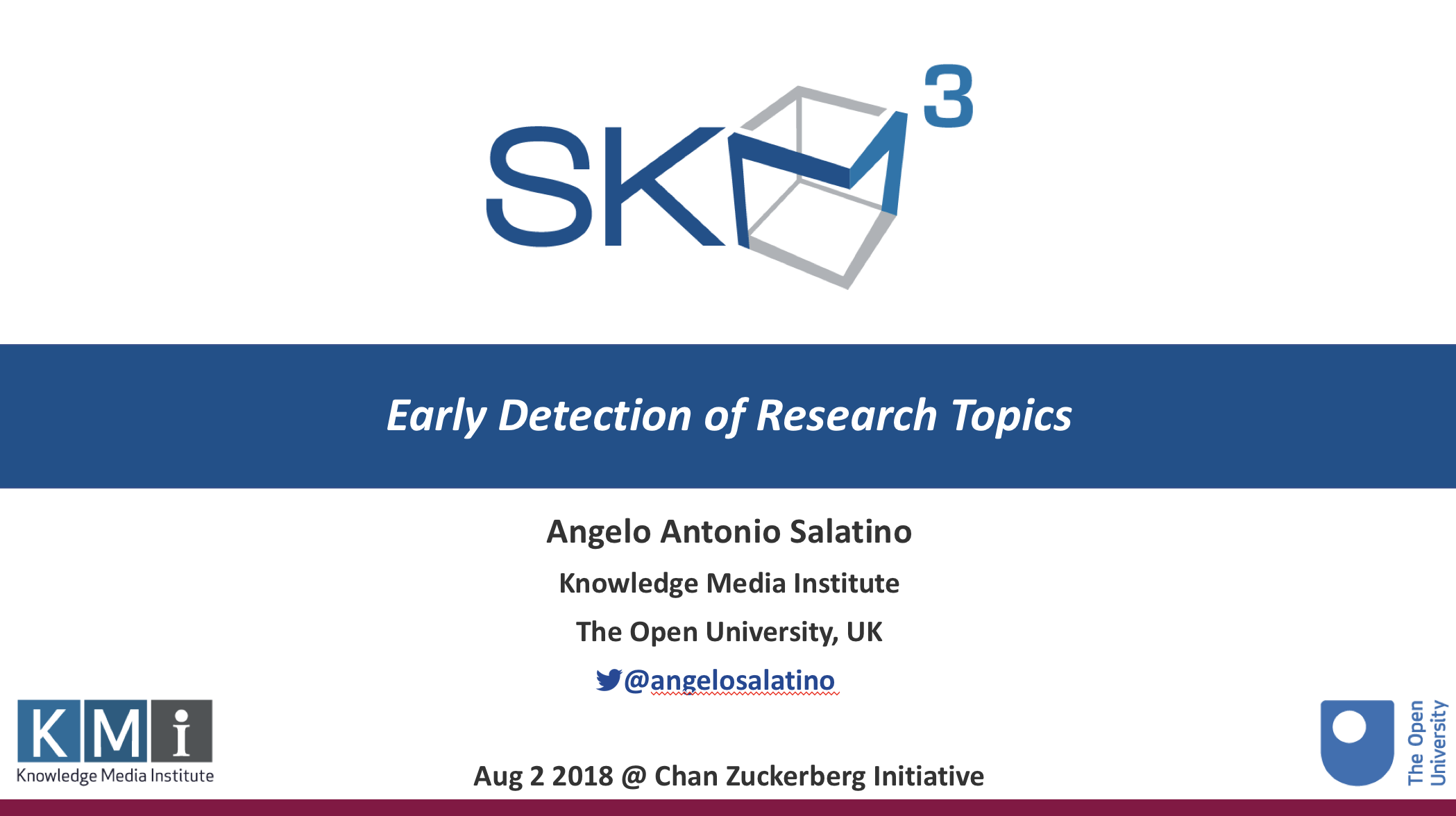
Invited Talk – Early detection of Research Topics
On 2nd of August 2018, I have been invited by Boris Veytsman, Principal Research Scientist at Chan Zuckerberg Initiative (formerly Meta), to give a talk about my PhD work. Differently from my previous talk to the ORNL group, I had the opportunity to describe my doctoral work more comprehensively. More specifically, I initially showed what is available […]
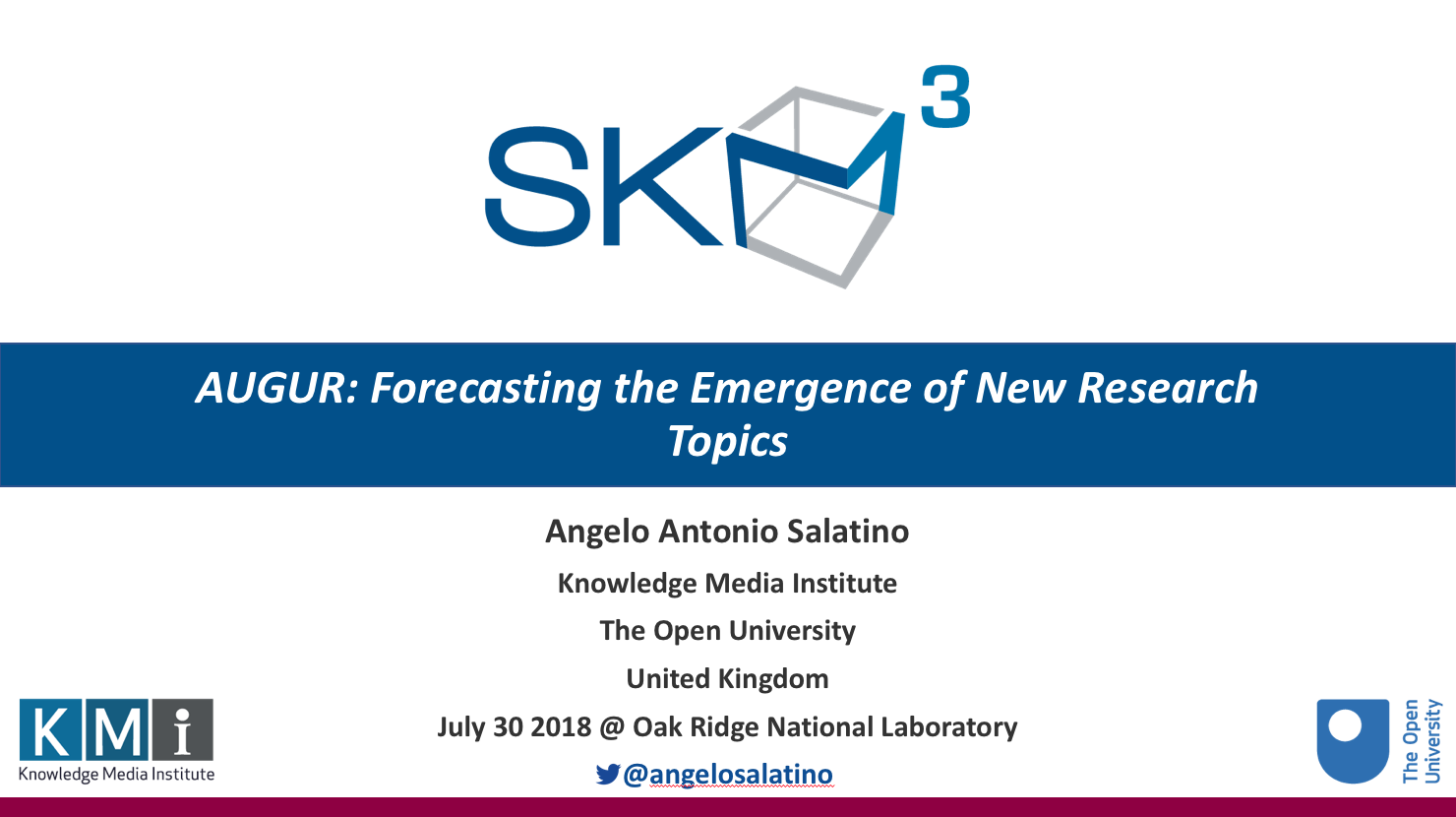
Invited Talk – AUGUR: Forecasting the Emergence of New Research Topics
On 30th Jul 2018, I have been invited from Dasha Herrmannova, former PhD student at the KMi, to give a talk at the “Machine Learning and Graph Mining for Big Scholarly Data” workshop organised for the Computational Data Analytics Group at Oak Ridge National Laboratory (ORNL). In this talk, named “AUGUR: Forecasting the Emergence of New […]

KMi Lab Photo 2018
After our last town meeting (with all the members of the KMi), we took a lab picture. It was since two years that we didn’t take one. In this picture, we wanted to show the KMi’s inclusiveness and diversity. Therefore, everyone of us was handing a flag associated to our nationality and/or birthplace. We can […]
BigDat2017: certificate of attendance
I have recently been attending in Bari (IT) a winter school about Big Data: BigDat2017. At the moment, Big Data is gaining great attention in research, since it allows to provide data-driven solutions in several contexts. As part of my postgraduate research I decided to attend it and follow the new developments in this field. […]
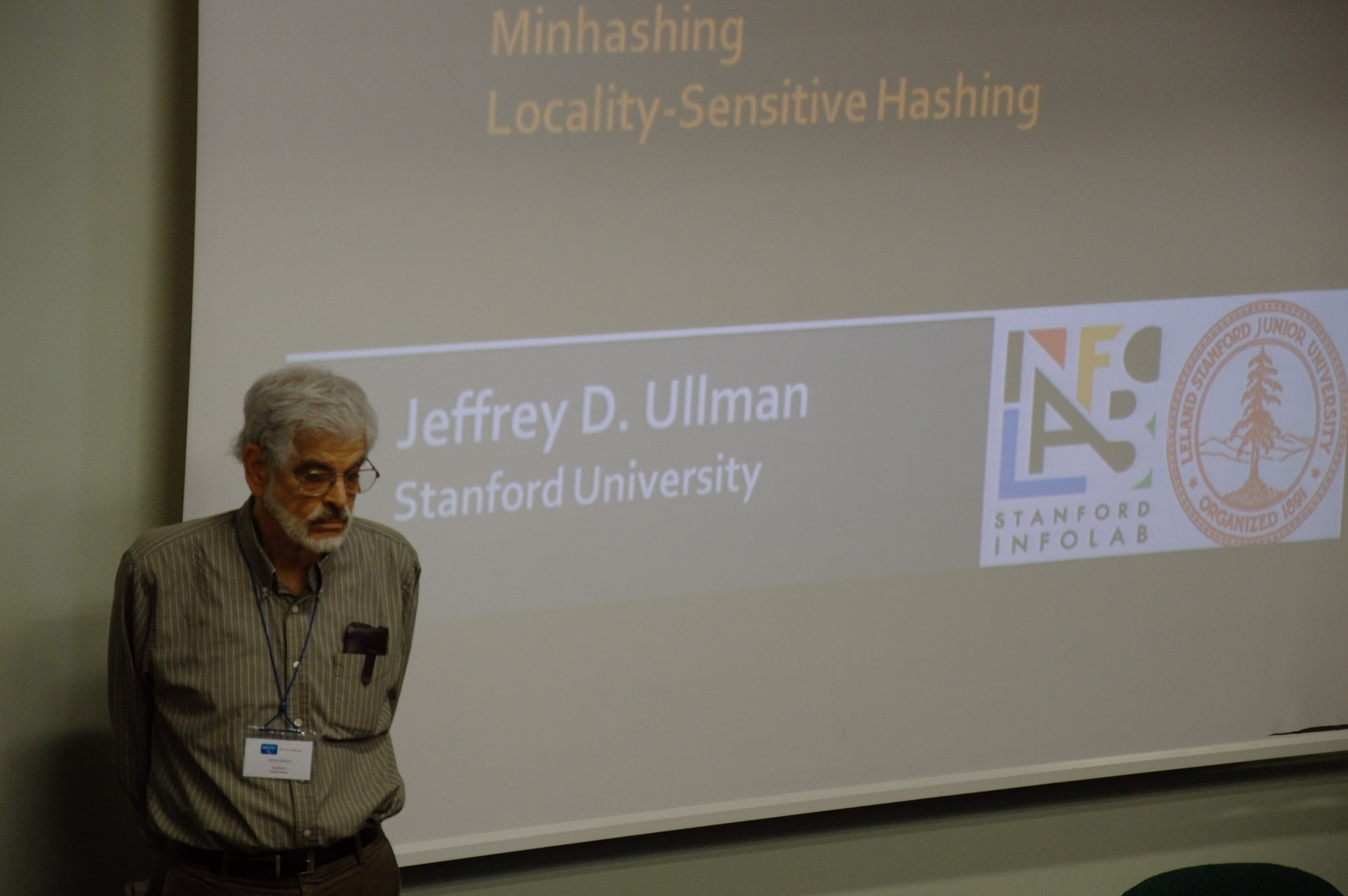
BigDat2017: a review
This week I have been attending the 3rd edition of the Big Data winter school: BigDat2017. It was held in my former campus, at the University of Bari (IT). It was a really nice feeling to be back for a while, sitting on those benches and following courses, once again. Big Data has recently gained […]
20th Anniversary of KMi
On the 20th of May 2015, my colleagues and I celebrated the 20th anniversary of the Knowledge Media Institute (KMi). The main point of the event was to show how far the KMi has reached as a lab and what is next in the Knowledge Media. The event itself has been organized in two main sessions. […]


